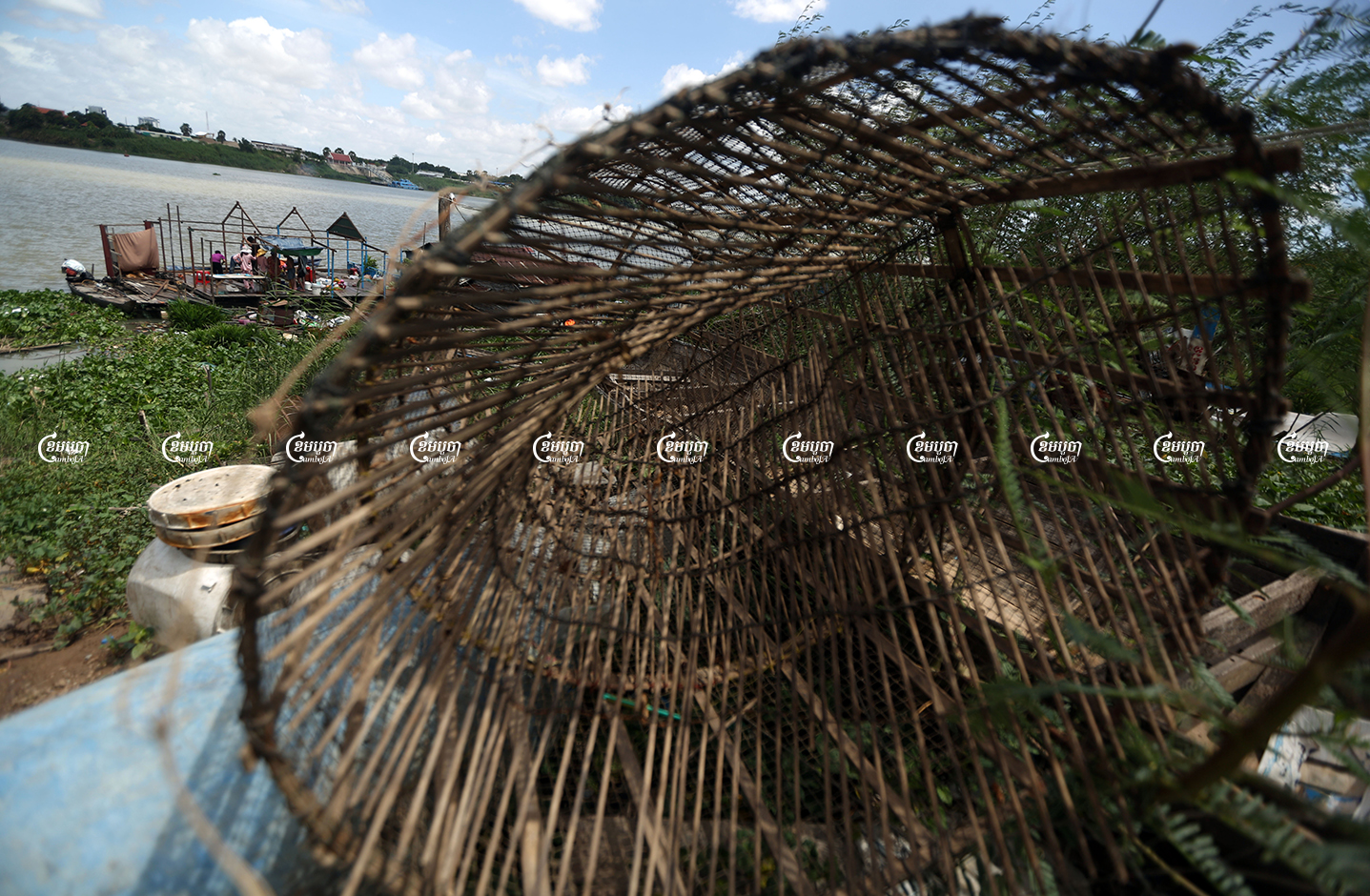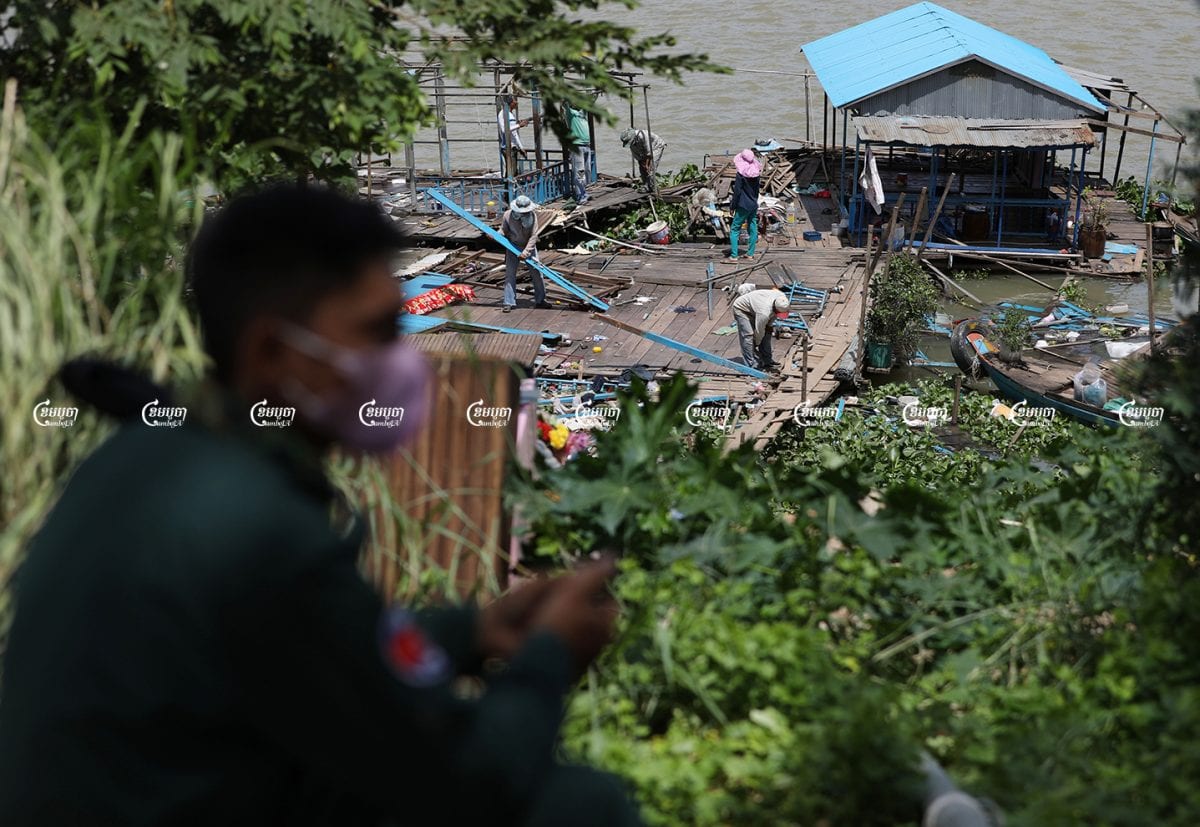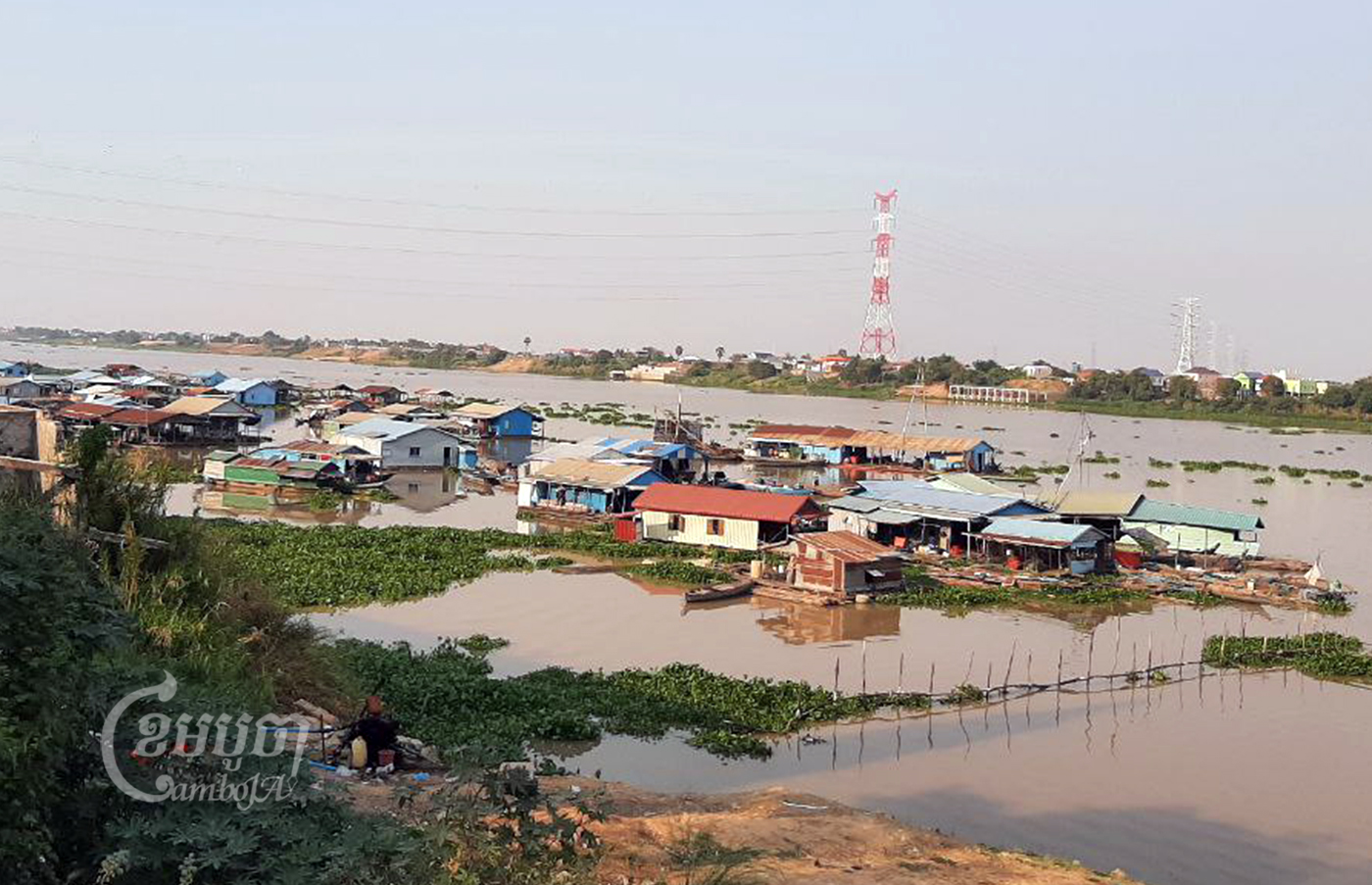Families evicted from floating settlements along the Mekong and Tonle Sap rivers in Phnom Penh are still looking for a place to live after they were driven from their homes by the city authorities on Saturday. And while the Vietnamese Association in Cambodia has continued to ask the authorities to give the families somewhere to stay temporarily, local officials say that the largely ethnic Vietnamese community is on its own.
Association president Sim Chy said that most of the families who had been driven off the waterfront had been living there for decades.
“They cannot move to Vietnam because they have no documents to identify them as Vietnamese,” he said. “We will follow the authorities’ decision, but we are just asking them to find these people a place to stay temporarily until their fish are ready to be caught.”
So far, there has been no response from authorities. Chy told CamboJA that about half of the people living on the river had now left their homes.
“Some are still living on the banks of the river, and some are renting rooms,” he said. “And we are also talking with authorities at provinces downstream to help facilitate temporary stays for them on the water as well. We are calling on charities and investors to provide them with as much support as possible.”
Le Yang Thong, 36, who was living in a floating house in Phsar Lech village in Prek Pnov district’s Prek Pnov commune until Saturday’s eviction, said that he and his four family members were struggling to find a house to rent.
“We are living temporarily in a yard on the riverbank — the house’s owner is allowing us to live here for a few days until we find a place to rent,” he said. “I have been trying to find somewhere here, but there are no houses left to rent, so we are looking for another place nearby.”
Chroy Changvar district governor Klaing Huot said that as of Monday, 90 percent of the floating houses had been removed.
“The local authorities don’t care where they are going, we’re just cleaning up the river,” he said. “They can rent a house on their own.”
The Mekong and Tonle Sap rivers in Phnom Penh have been home to hundreds of inhabited fishing boats and floating houses for many years. On Saturday, Phnom Penh authorities began tearing down the communities’ floating houses, fish farms and other informal settlements after a one-week notice period ordering the communities to leave due to what authorities described as environmental concerns.

Social and political analyst Em Sovannara said that by itself, the eviction would not be successful in keeping the river clean.
“If the authorities want to preserve the river’s ecosystem, these measures should be implemented in other provinces — Phnom Penh should not be the only case,” he said. “We still remember that when Mr. Chea Sophara was mayor, he did it once, but then there were still many floating houses remaining.”
Sovannara said that he believed the government also needed to have a mechanism to enforce the country’s immigration laws.
“[We] need to look at their legitimacy as well. If they are legal, allow them to continue living [in Cambodia], but if they are found living illegally, the government can send them back to their original country,” he said.
Kem Sarin, spokesperson for the Ministry of Interior’s general department of immigration, referred questions to the Phnom Penh municipal authorities.
“Please ask the Phnom Penh authorities, we’ve handed over this duty to City Hall and we will be waiting for a report from them,” he said.
Met Measpheakdey, spokesman of Phnom Penh City Hall could not be reached for comment, nor could Prek Prov district governor Sok Sambath. Chbar Ampov district governor Cheng Monira declined to comment. Phnom Penh deputy governor Keut Chhe also refused to comment, saying that he was in quarantine.
Political analyst Meas Ny said that in general, the government needed to provide a reasonable solution for those who were being forced from their homes. He added that he thought it was unlikely that the government would enforce immigration laws for risk of damaging its relationship with neighbouring Vietnam.
“In this regard, I also do not understand why the authorities are doing this now, as Cambodian people have been waiting for this for a long time,” he said. “There may be some political aspects related to the election, but I will not comment further.”









